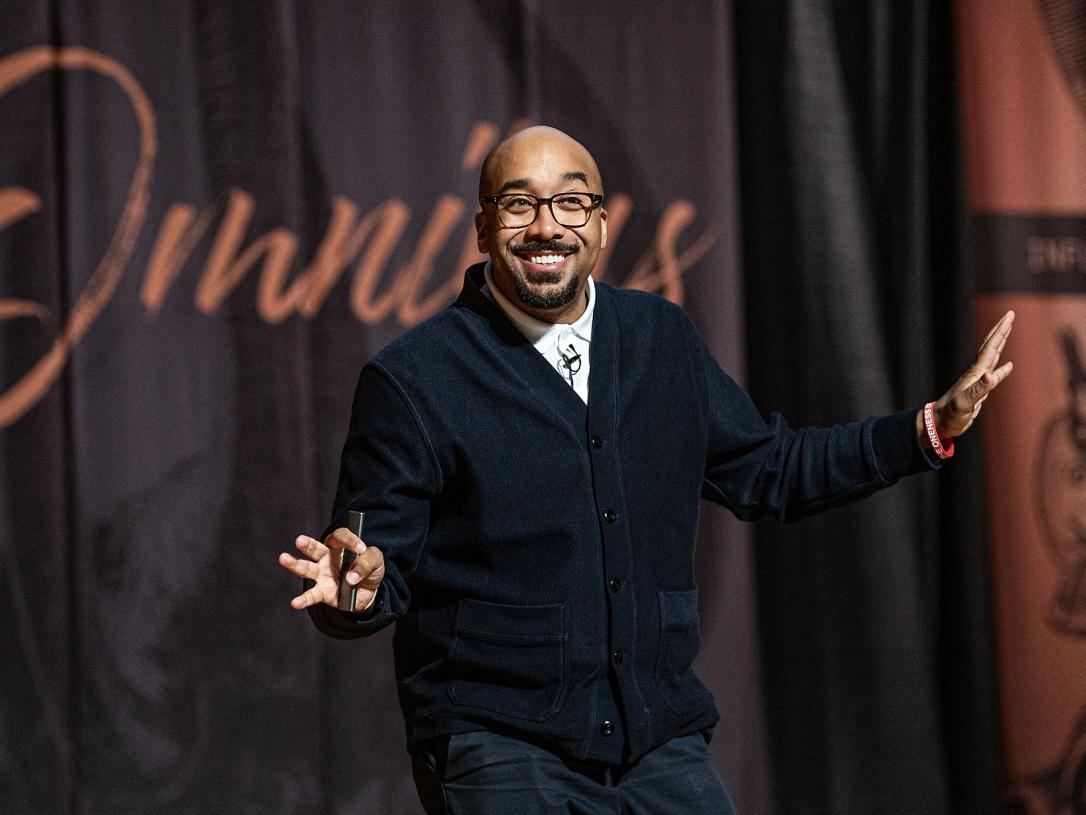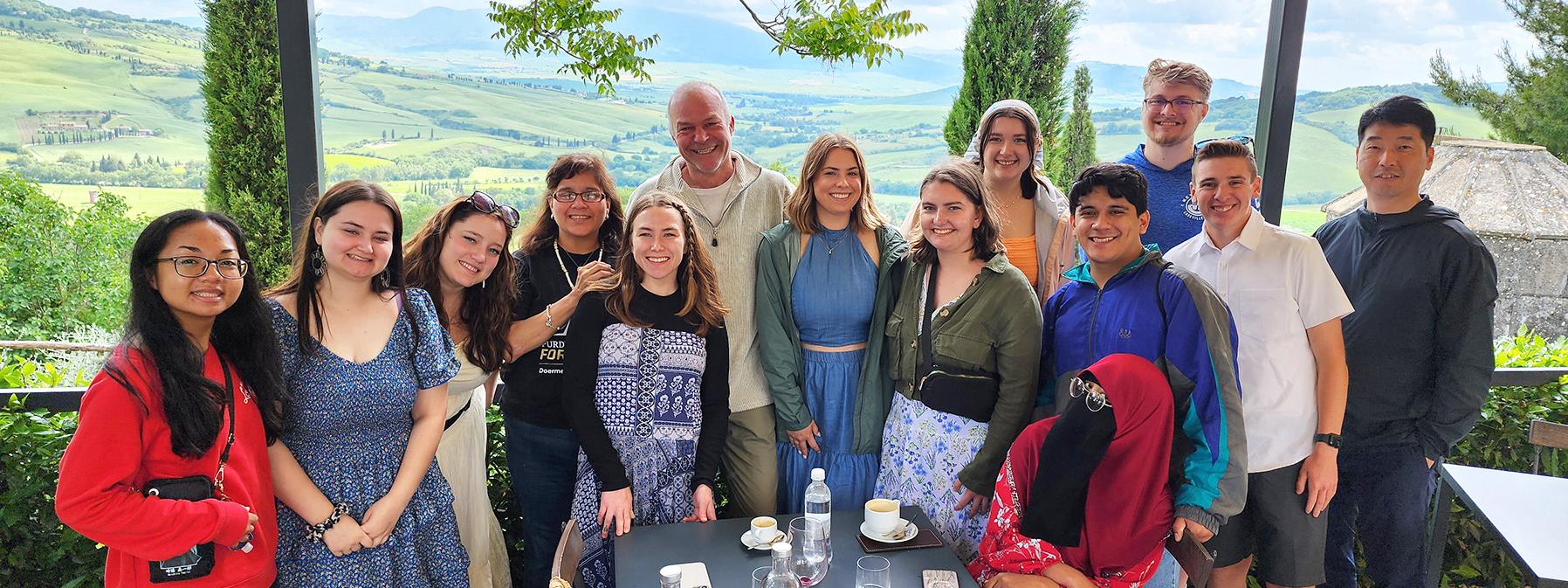
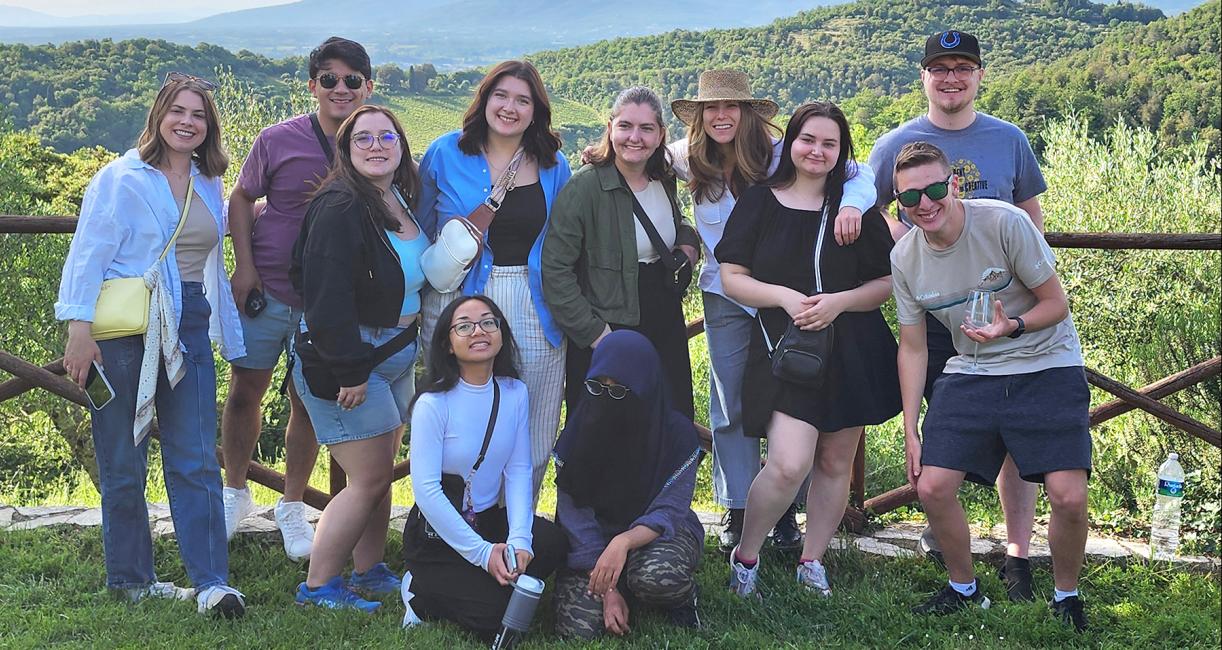
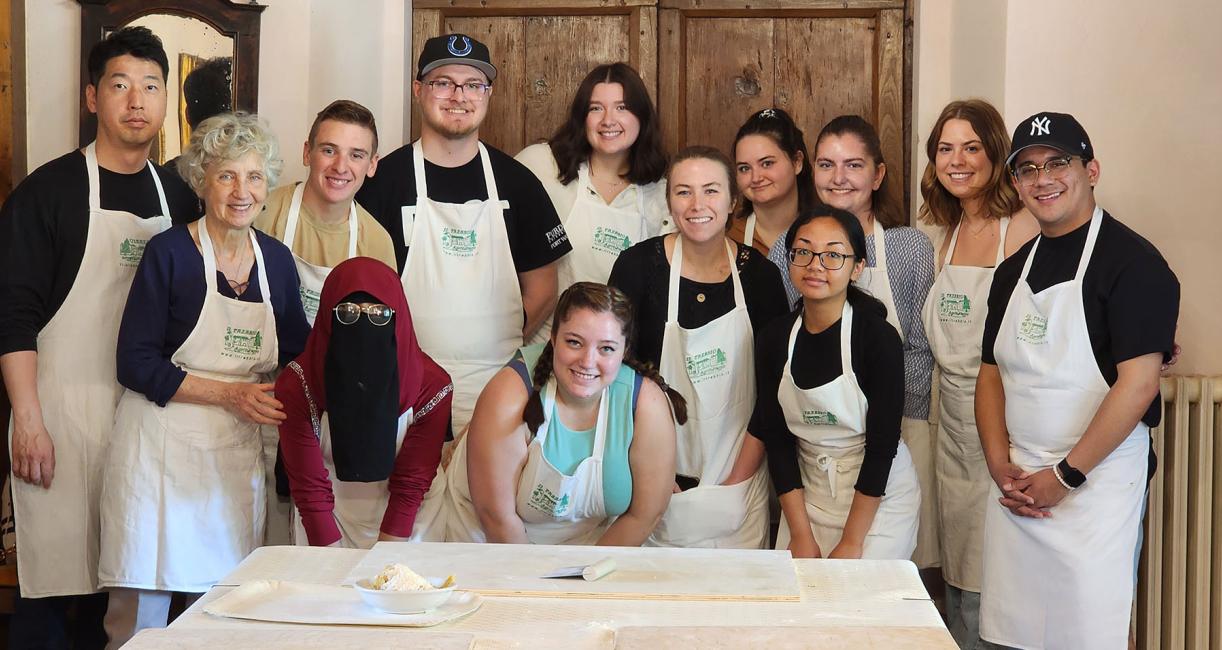
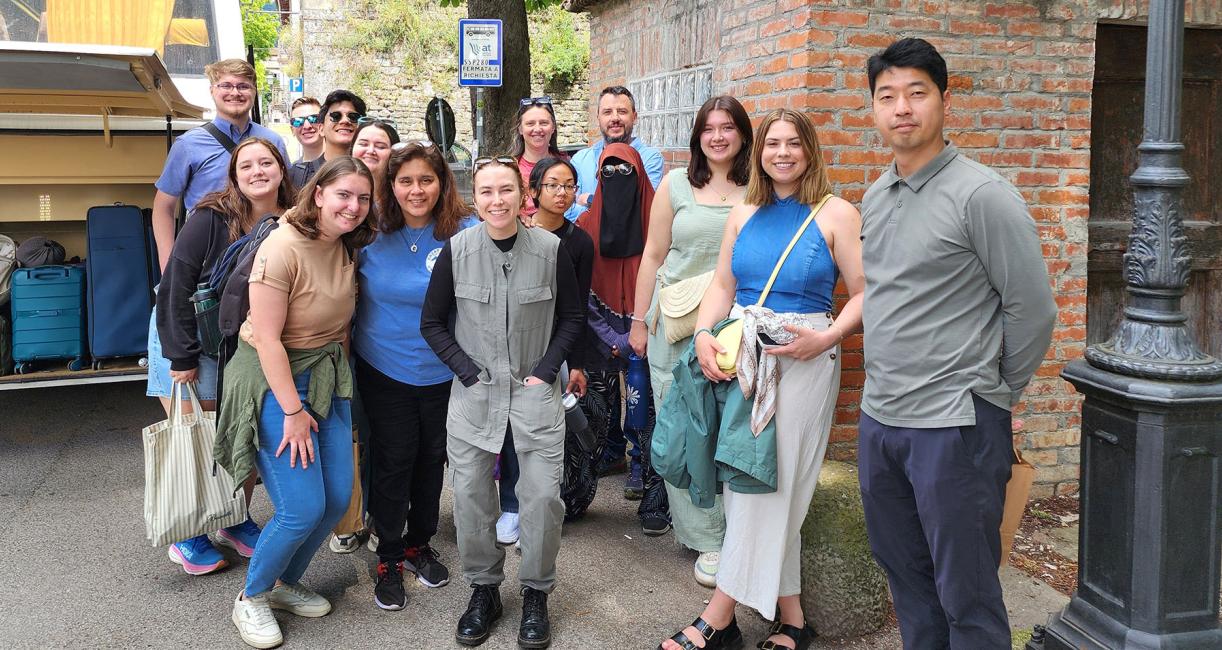

Laughter, food, and personal passions highlight business school trip to Italy
By Blake Sebring
July 16, 2024
There aren’t many business trips where participants make ravioli with beet leaf and ricotta cheese filling, or produce pasta from scratch while learning centuries-old family traditions.
But most business trips don’t take place in Italy.
Eleven hospitality and management and marketing students from the Doermer School of Business’ special topics in international business class spent May 14-30 in essentially a walking laboratory centered around Florence and Sansepolcro. The trip was led by Elva Resendez, clinical assistant professor of management and director of accreditation for the Doermer School of Business, and Haeik Park, associate professor in the Department of Hospitality and Tourism Management.
“It was a very joyful and laughter-filled experience where the group connected together,” said Purdue University Fort Wayne senior Riley Browning. “As a culinary passionate person, this was an amazing experience I will remember for a long time.”
In preparation for the trip, faculty members talked about how to travel internationally, what to pack, safety behaviors, and even how to dress. Almost all the juniors and seniors were traveling abroad for the first time.
As the professors pointed out marketing and advertising differences compared to the United States, the students walked to various businesses to explore different styles. That included sampling products and interviewing owners and managers for class reports. Businesses were often centered around family homes, particularly restaurants.
“Many of the business owners we talked to throughout the trip mentioned how much they love what they do and encouraged us to follow what we are passionate about,” said junior Renee Liu. “Personally, the trip didn’t change my mind very much. Rather, it strengthened my resolve to travel more and learn about other cultures and lifestyles.”
Differences everyone noticed included the hilly and mountainous terrain; building decoration in Florence; how Italian fashion includes layers, colors, and textures; window displays; that wine is cheaper than water; and even the various ways to flush toilets. There were also narrow ancient streets, which limited automobiles.
“The symbiotic relationship of traffic and pedestrian was fascinating to watch,” said senior Kayla Woodbury. “People would walk everywhere, and you could get almost everywhere using your feet in a big city. Cars were patient and would wait for people to cross before going on their way with no horn, swearing, or aggressive driving. People would weave through crowds and entire blocks where no cars were allowed.”
The food preparation and enjoyment provided many lasting memories. Several students talked about how meals took time to prepare and hours to fully enjoy.
“It is a culture that is focused on the enjoyment of the slow lifestyle,” Browning said. “The dinners are long and meant to socialize and be present with your loved ones. Everything from what you eat and when you eat is focused on mindfulness and what will benefit your body. Italians are focused on enjoying life, and that is something that impacted me.
“The people have deep family traditions and work to preserve their culture and family history. They are a true community where each family has a job or specific tradition that they specialize in to benefit the collective community.”
As for advice for future travelers?
“Don’t worry about being overly `American,’” Woodbury said. “Just be polite, not overly loud, and respectful to the people that live and work around you while in Europe. Learn some of the language: please, thank you, hello, sorry, excuse me, good morning, and other language context clues. Europeans are different from Americans for sure, and cultural things will creep up—but don’t freak out!”
Liu said she wants to move overseas as soon as possible to experience more.
Because everyone traveled to Italy individually, Resendez asked the students to text her when they arrived home, and some sent pictures. One student sent a picture of a typical American hamburger, and another showed themself saluting an American flag.
“My sincere hope is that they appreciate what they have here, and I think they do,” Resendez said. “I want them to have an appreciation of what we have, but also an appreciation of different points of view. I believe they got that.”



